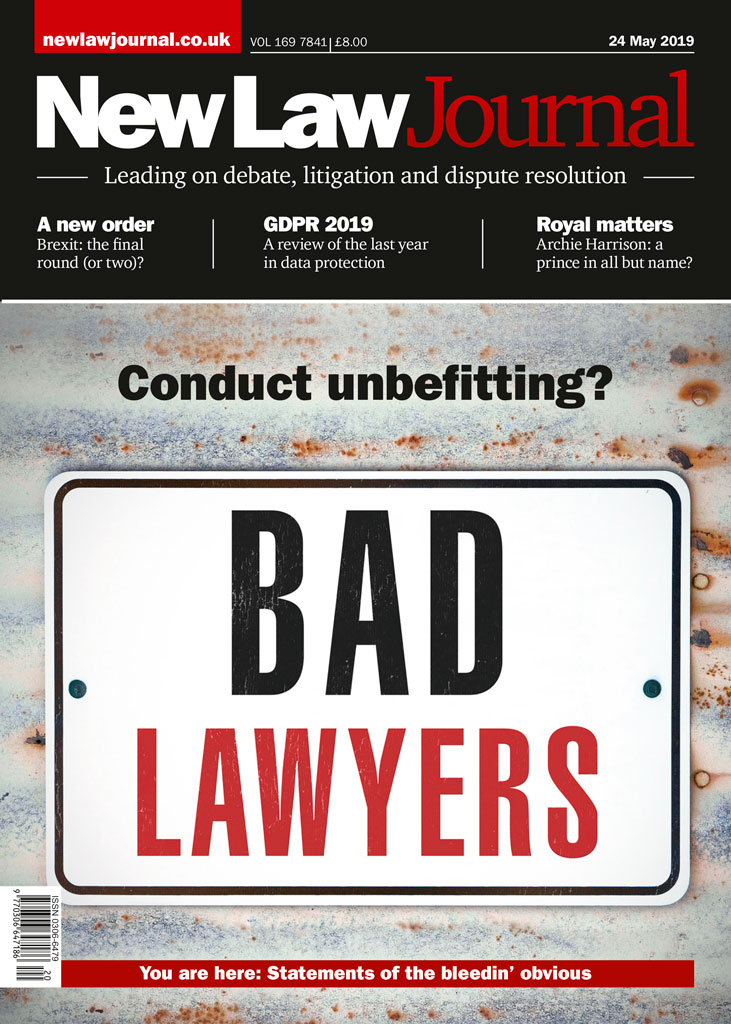THIS ISSUE

Conduct unbefitting? John Gould weighs up the evidence surrounding legal but anti-social lawyering
David White provides a review of the last year in the data protection world & considers future challenges
Richard Harrison examines the delicate art of drafting comprehensive, careful & effective witness statements
Alec Samuels reflects on the particular duty of the police to protect us
A claim arising in the French office of an international law firm should stay in France, as Charles Pigott explains
In the second part of this special series on R & S Pilling t/a Phoenix Engineering v UK Insurance Ltd, Nicholas Bevan analyses the Supreme Court’s approach to motor policy construction
A child who is the great-grandson of a reigning Queen could never be anything but royal, as Michael Nash explains
Bullying & harassment are rife in UK law. And it’s time for us all to act, says Sarah Goulbourne
Formal constitutional upheaval can mask the vast amounts of work being undertaken on all sides to find a workable Brexit, says David Greene
MOVERS & SHAKERS

Michelman Robinson—Daniel Burbeary
Firm names partner as London office managing partner

Bellevue Law—Sally Hall
Employment boutique strengthens data protection and privacy offering with senior consultant hire

NLJ Career Profile: Ken Fowlie, Stowe Family Law
Ken Fowlie, chairman of Stowe Family Law, reflects on more than 30 years in legal services after ‘falling into law’
NEWS
Personal injury lawyers have welcomed a government U-turn on a ‘substantial prejudice’ defence that risked enabling defendants in child sexual abuse civil cases to have proceedings against them dropped
Children can claim for ‘lost years’ damages in personal injury cases, the Supreme Court has held in a landmark judgment
The Supreme Court has drawn a firm line under branding creativity in regulated markets. In Dairy UK Ltd v Oatly AB, it ruled that Oatly’s ‘post-milk generation’ trade mark unlawfully deployed a protected dairy designation. In NLJ this week, Asima Rana of DWF explains that the court prioritised ‘regulatory clarity over creative branding choices’, holding that ‘designation’ extends beyond product names to marketing slogans
From cat fouling to Part 36 brinkmanship, the latest 'Civil way' round-up is a reminder that procedural skirmishes can have sharp teeth. NLJ columnist Stephen Gold ranges across recent decisions with his customary wit
Digital loot may feel like property, but civil law is not always convinced. In NLJ this week, Paul Schwartfeger of 36 Stone and Nadia Latti of CMS examine fraud involving platform-controlled digital assets, from ‘account takeover and asset stripping’ to ‘value laundering’






